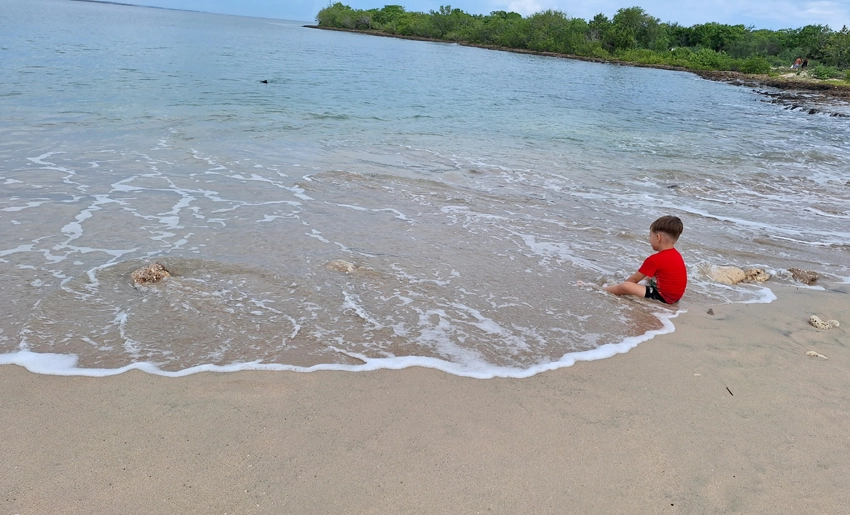Many people enjoy spending their vacations at the beach. One of the most visited places during the holiday season and a highly sought-after tourist destination in the summer. When you’re at the beach, it’s as if nothing else matters, as if the stressful world that exists outside that immense sea and that expanse of sand doesn’t exist. That’s how much the sea relaxes us and brings us well-being. Here’s why.
Landscapes related to the sea are the ones that most captivate people, according to my professional experience. When I invite my patients to close their eyes and visualize a pleasant landscape to begin a relaxation exercise, most visualize beaches that have been stored in their minds like photographic images.
Seeing the sea, getting wet in its waters, playing with its waves, feeling its aroma, the scent of the breeze, the touch of the sand, the sound of a crashing wave, the open blue sky, the verdant vegetation that surrounds it—it’s an unforgettable experience. Perceiving the sea in this way, with all our senses. Produces effects similar to meditation or mindfulness. Focusing on the sensations of the here and now when we are near the sea can help us enter a state of relaxation.
Factors that make the sea relaxing and promote well-being:
- Its blue color. This color helps lower blood pressure, reduces our fears, and helps us experience tranquility.
- The constant and repetitive sound of its waves. When a sound is constant and repetitive. It makes it easier for us to concentrate on it. The sound of the waves helps us synchronize our breathing with its rhythm. Our breathing becomes deeper and slower.
- Its immensity. It helps to dispel ruminative thoughts, worries, and obsessions. It creates a disconnection from our daily reality, a beneficial break for our minds.
- Its smell. Scents evoke memories and awaken emotions. The smell of the sea is a mixture of chemical substances from salt, fish, crustaceans, wet rocks, and dimethyl sulfide (DMS). It is precisely DMS that gives the sea its characteristic smell. The sea smells of life, and if we have ever felt pleasant emotions by the sea, its smell will immediately awaken those same emotions.
- Its open space. So open to our view that it “merges with the sky.” A space of this nature fosters creativity, lets the imagination soar, and disinhibits us.
- The high magnesium content of seawater is also considered to contribute to relaxation, thus reducing stress and anxiety. Sea air is rich in negative ions which, unlike positive ions, relax us and promote the release of serotonin. A brain neurotransmitter that produces a feeling of well-being and a good mood.
All these sensations enhance the appearance of alpha waves in the brain, which are related to rest and relaxation.
According to Wallace J. Nichols, marine biologist and author of the book Blue Mind, “We all react positively to environments that make us feel connected to nature. Being near the sea helps us be more creative. Since the color blue is associated with calm, relaxation, depth, and knowledge, all of which foster creativity. Observing a large amount of blue induces a meditative state. With a feeling of calm, inner peace, and a sense of satisfaction with our lives in general.”
Being near the sea also provides an opportunity to disconnect from the stress of daily life. To begin with, it’s a way to escape the noise of the streets, the offices, the daily traffic, the doorbell or cell phone ringtones. The challenge of squeezing onto a crowded bus, the hustle and bustle, work-related stress, and many other stressful situations.

So, if you have the chance, seize it. Don’t hesitate for a moment and go for a good swim. But remember, it’s not just about that good swim. It’s about fully enjoying all the components and benefits of the sea that I’ve mentioned. That’s how you’ll recharge your batteries to keep going.
Relaxation, well-being, and happiness… In short, the sea.
- Personality Disorders: Understanding to Support and Accompany - 25 de February de 2026
- A Guide to Improving Our Mental Health - 16 de January de 2026
- How to Make Your New Year’s List - 5 de January de 2026

